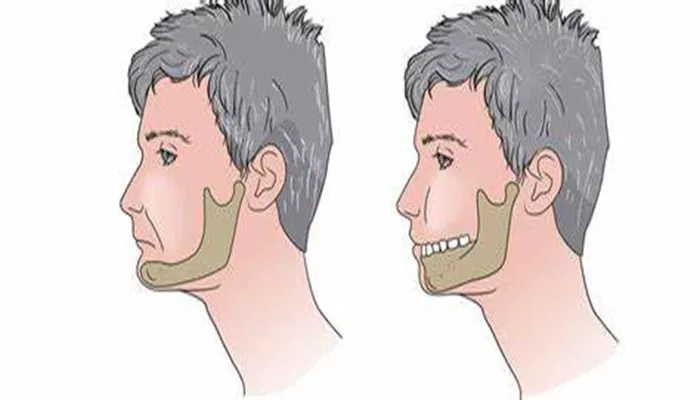Wisdom teeth removal is a common dental procedure that many individuals undergo, particularly when these teeth fail to erupt properly or cause discomfort and potential dental issues. While the procedure itself is generally straightforward and carried out under professional care, the recovery period can vary significantly among individuals. One common complaint during this recovery phase is pain or discomfort when swallowing. This article aims to provide a comprehensive understanding of why swallowing hurts after wisdom teeth removal, addressing the underlying causes, potential complications, and measures to alleviate discomfort.
Understanding Wisdom Teeth Removal
Wisdom teeth are the last set of molars to erupt in the human mouth, typically appearing between the ages of 17 and 25.
However, due to the limited space in the jaw, these teeth often fail to erupt properly, leading to various dental issues such as impaction, crowding, and damage to adjacent teeth. In such cases, wisdom teeth removal becomes necessary to prevent further complications.
The removal process involves numbing the area around the wisdom teeth with local anesthesia and, in some cases, using sedation or general anesthesia for more complex procedures. Once the teeth are removed, the surgical site is sutured to promote healing and reduce the risk of infection. Despite the advancements in dental surgery, wisdom teeth removal is still considered a surgical procedure, and patients can experience varying degrees of discomfort and pain during the recovery phase.
Causes of Swallowing Pain After Wisdom Teeth Removal
Surgical Trauma
The primary reason for swallowing pain after wisdom teeth removal is surgical trauma. The removal of wisdom teeth, especially those that are impacted or partially erupted, involves significant manipulation of the surrounding tissues and bone. This trauma can lead to inflammation, swelling, and bleeding in the surgical site, which can extend to the throat and make swallowing painful.
Muscle Soreness
During the removal process, the patient’s mouth is often held open for an extended period to provide the dentist with clear access to the surgical site. This prolonged opening of the mouth can cause muscle soreness and stiffness in the jaw and throat area, making swallowing uncomfortable.
Post-operative Infection
Infection is a potential complication of any surgical procedure, including wisdom teeth removal. Post-operative infections can occur if the surgical site becomes contaminated with bacteria or if the patient does not follow proper post-operative care instructions. Infected surgical sites can become inflamed, painful, and swollen, extending the discomfort to the throat and making swallowing difficult.
Dry Socket
Dry socket is a specific complication of wisdom teeth removal that occurs when the blood clot that forms in the socket after surgery dislodges or does not form properly. This exposes the underlying bone and nerve endings to air and food particles, causing severe pain, swelling, and discomfort in the surgical site. Dry socket can also lead to throat pain and difficulty swallowing due to the proximity of the surgical site to the throat.
Managing Swallowing Pain After Wisdom Teeth Removal
1. Pain Relief Medications
One of the most effective ways to manage swallowing pain after wisdom teeth removal is to take pain relief medications as prescribed by the dentist. Non-steroidal anti-inflammatory drugs (NSAIDs) and opioids can help reduce inflammation, swelling, and pain in the surgical site, making swallowing more comfortable.
2. Cold Therapy
Applying ice packs to the outside of the cheek near the surgical site can help reduce inflammation and swelling, which can alleviate throat pain and make swallowing easier. Cold therapy should be applied for 20 minutes at a time, with a break of at least 20 minutes between applications, to avoid frostbite.
3. Proper Diet
After wisdom teeth removal, it is essential to maintain a soft, liquid, or blenderized diet for several days to avoid irritation and discomfort in the surgical site. Soft foods such as yogurt, soup, and mashed potatoes can be easily swallowed without causing pain or discomfort. Avoiding acidic, spicy, and hard foods can also help prevent further irritation and promote healing.
4. Good Oral Hygiene
Maintaining good oral hygiene is crucial after wisdom teeth removal to prevent infection and promote healing. Gentle brushing and rinsing with an antiseptic mouthwash can help keep the surgical site clean and reduce the risk of infection.
However, it is important to avoid rinsing vigorously or spitting forcefully, which can disrupt the healing process and cause discomfort.
5. Rest and Elevation
Getting plenty of rest and elevating the head can help reduce inflammation and swelling in the surgical site, making swallowing more comfortable. Sleeping with an extra pillow or two can help keep the head elevated and reduce throat discomfort.
Potential Complications and When to Seek Medical Attention
While swallowing pain after wisdom teeth removal is common and usually manageable with proper care, there are potential complications that may require medical attention. If the pain or discomfort persists beyond the expected recovery period, or if it is accompanied by symptoms such as fever, chills, excessive bleeding, or difficulty breathing, it is essential to seek medical attention promptly.
Infections, dry sockets, and other complications can require additional treatment, such as antibiotics, irrigation of the surgical site, or even re-surgery. Seeking medical attention promptly can help prevent further complications and promote healing.
Conclusion
In conclusion, swallowing pain after wisdom teeth removal is a common complaint that can be caused by surgical trauma, muscle soreness, post-operative infection, and dry socket. Managing this pain and discomfort involves taking pain relief medications, applying cold therapy, maintaining a proper diet, practicing good oral hygiene, and getting plenty of rest and elevation. However, if the pain persists or is accompanied by other symptoms, it is essential to seek medical attention promptly to prevent further complications and ensure proper healing. With proper care and attention, most patients can recover from wisdom teeth removal with minimal discomfort and return to their normal activities within a few days to a week.
Related topics:

